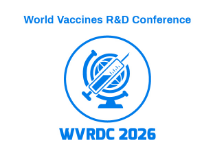Scientific Sessions
Veterinary Vaccines
Veterinary vaccines protect animals from infectious diseases, ensuring animal health, food security, and public health by preventing zoonotic diseases. They include live-attenuated vaccines (for example, rabies), inactivated vaccines (for example, foot-and-mouth disease), subunit vaccines (for example, canine distemper), and DNA vaccines (for example, West Nile virus). With increasing demand for animal food, veterinary vaccines help minimize suffering, enhance productivity, and prevent disease transmission. The World Vaccines R&D Conference promotes ongoing research in these vaccines to advance them and improve animal health globally, especially concerning emerging diseases and evolving pathogens.

